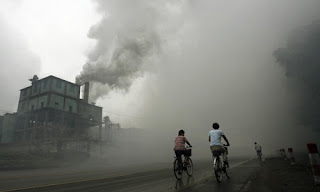Pipeline Attacked Near Israel-Egypt Border
 Jennifer Lopez, Beyonce Knowles & Katy Perry topped the charts (in that order) in the 16th annual Sally Beauty Best Tressed Survey. The survey polled results from 1,000 American women on the best and worst celebrity hair styles of the year.
Jennifer Lopez, Beyonce Knowles & Katy Perry topped the charts (in that order) in the 16th annual Sally Beauty Best Tressed Survey. The survey polled results from 1,000 American women on the best and worst celebrity hair styles of the year.Long layered haircuts have clearly been the trend in celebrity hair styles for the last year and more. This poll is another indication that long hair styles are here to stay for a while longer. These long hair styles have varied mostly with the cutting in of bangs or no bangs. Side swept bangs, blunt bangs, wispy bangs or choppy bangs all contribute to changing the overall look of long hair styles, so find out if bangs are right for you.
This poll also included some questions on personal hair care that had some surprising results, check it out below.
EL-ARISH, Egypt - An explosion rocked a gas terminal in Egypt's northern Sinai Peninsula on Saturday, setting off a massive fire that was contained after officials shut off the flow of gas to neighboring Jordan and Egypt, officials said.
There were no reports of casualties from the blast at a gas terminal in the Sinai town of El-Arish. The explosion sent a pillar of flames leaping into the sky, but was a safe distance from the nearest homes, said regional governor Abdel Wahab Mabrouk.
The cause of the explosion was not clear. Mabrouk told Egyptian media he suspected "sabotage," but did not explain further.
The blast came as a popular uprising engulfed Egypt, where anti-government protesters have been demanding the ouster of longtime President Hosni Mubarak for the past two weeks. The Sinai Peninsula, home to Bedouin tribesmen, has been the scene of clashes between residents and security forces. It borders both Israel and the Gaza Strip, ruled by the Islamic militant Hamas.
The pipeline transports gas from Egypt's Port Said on the Mediterranean Sea to Israel, Syria and Jordan.
Mabrouk told Egypt's Nile News TV that the fire was brought under control by mid-morning, after valves allowing the flow of gas from the terminal into pipelines were shut off.
Egyptian authorities expect gas to remain shut off for a week, until repairs are completed, Maabrah said.
Egypt has potential natural gas reserves of 62 trillion cubic feet, the 18th largest in the world.
Neighboring Israel relies on the gas pipeline to meet its energy needs and spends billions to bring natural gas from Egypt.
Israeli Prime Minister Benjamin Netanyahu's office said that it's not clear whether damage was caused to the pipeline leading to Israel. "But as a security precaution, Israel temporarily stopped, by its own initiative, the transfer of gas as procedure dictates," the statement said. Israel has alternative energy sources and is not likely to experience power shortages, the statement said.
The blast also halted the gas supply to Jordan, which depends on Egyptian gas to generate 80 percent of its electricity.
Jordan's National Electric Power Company is resorting to heavy fuel and diesel to keep national power plants running, said the company's director-general, Ghalib Maabrah. He said Jordan has heavy fuel and diesel reserves to generate electricity for three weeks, adding that the shift will cost Jordan $4.2 million a day.
The SITE intelligence group, which monitors Islamist websites, reported that jihadists had issued online posts urging Sinai Bedouin tribes to launch attacks against the pipeline. SITE quoted one Islamist website author who wrote: "To our brothers, the Bedouins of Sinai, the heroes of Islam, strike with an iron fist, because this is a chance to stop the supply to the Israelites."
Egypt began providing Israel with natural gas in February 2008 under a deal by which it will sell Israel 60 billion cubic feet a year for 15 years.
The deal raised controversy at home, with some in the Egyptian opposition saying the gas was being sold at below-market rates. Others resent Israel's treatment of Palestinians, and say Egypt shouldn't supply energy to Israel.
"The deal (to sell gas) was a blow to the pride of Egyptians and a betrayal," former diplomat Ibrahim Yousri told The Associated Press on Saturday.
Yousri led a high court challenge to try halt Egypt's sale of gas to Israel. Although the high court ruled in his favor in February 2010, the ruling was widely ignored by the government.
The Sinai gas pipelines have come under attack in the past. Bedouin tribesmen attempted to blow up the pipeline last July as tensions intensified between them and the Egyptian government, which they accuse of discrimination and of ignoring their plight.

